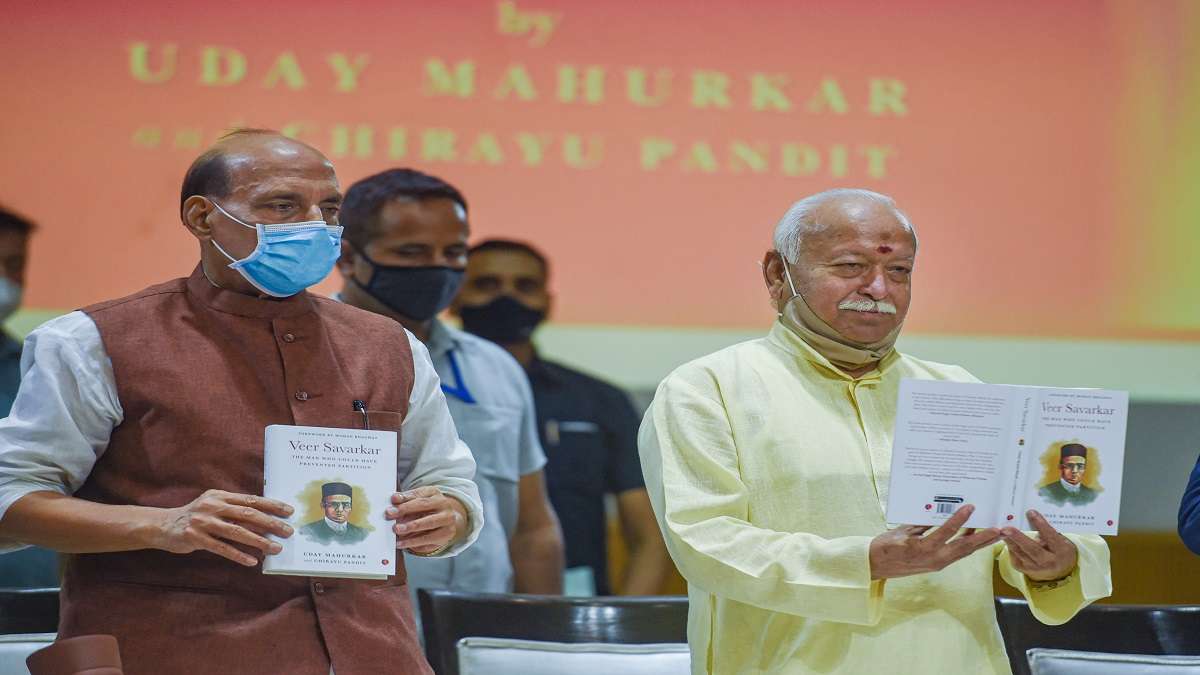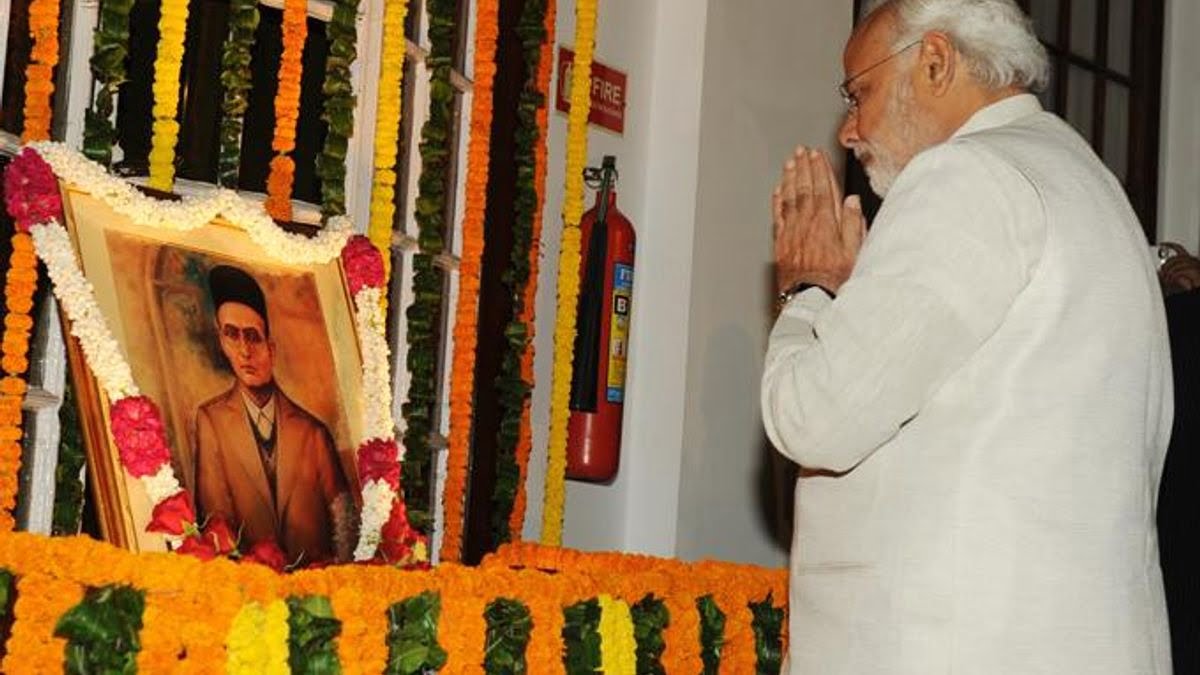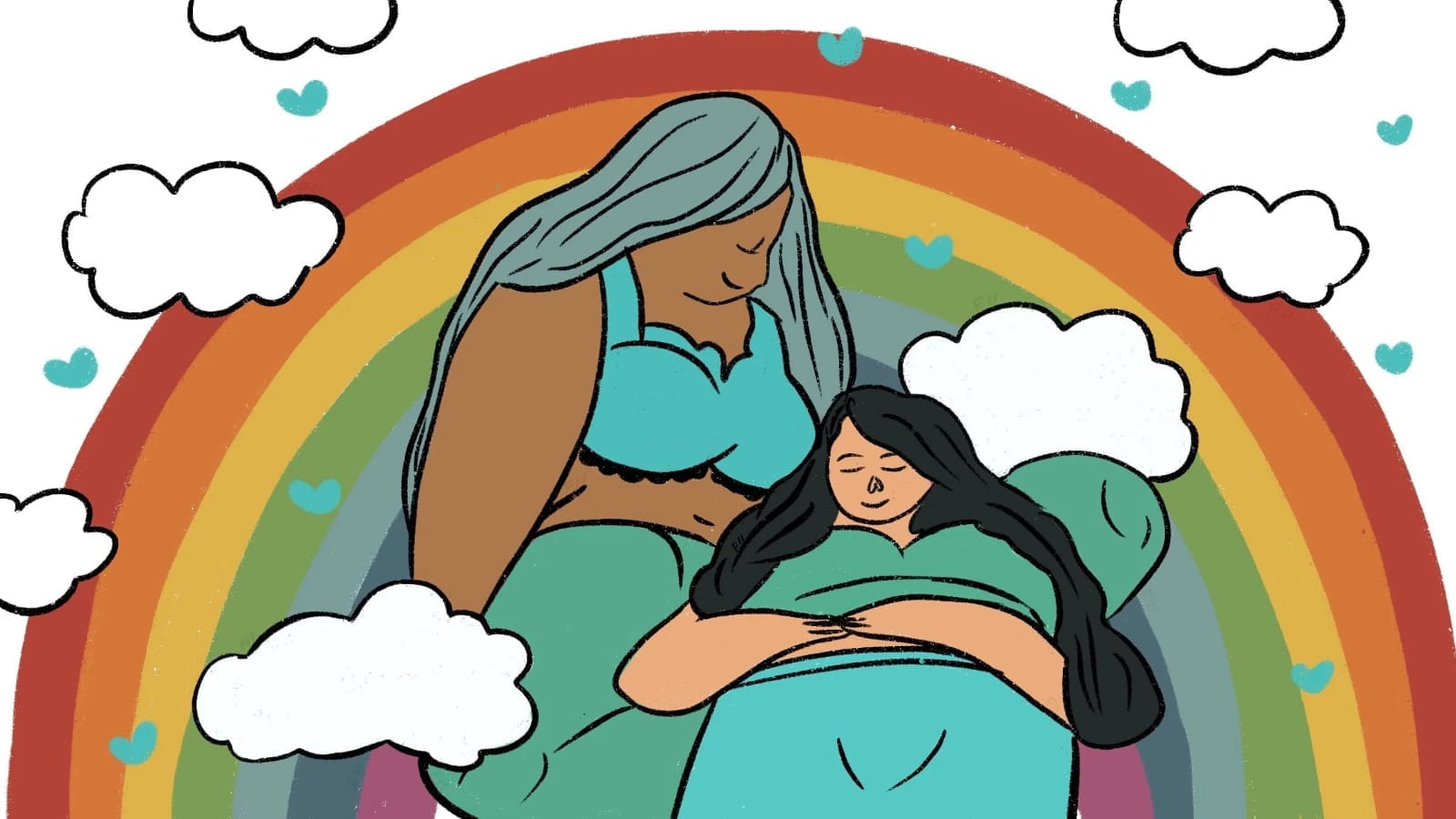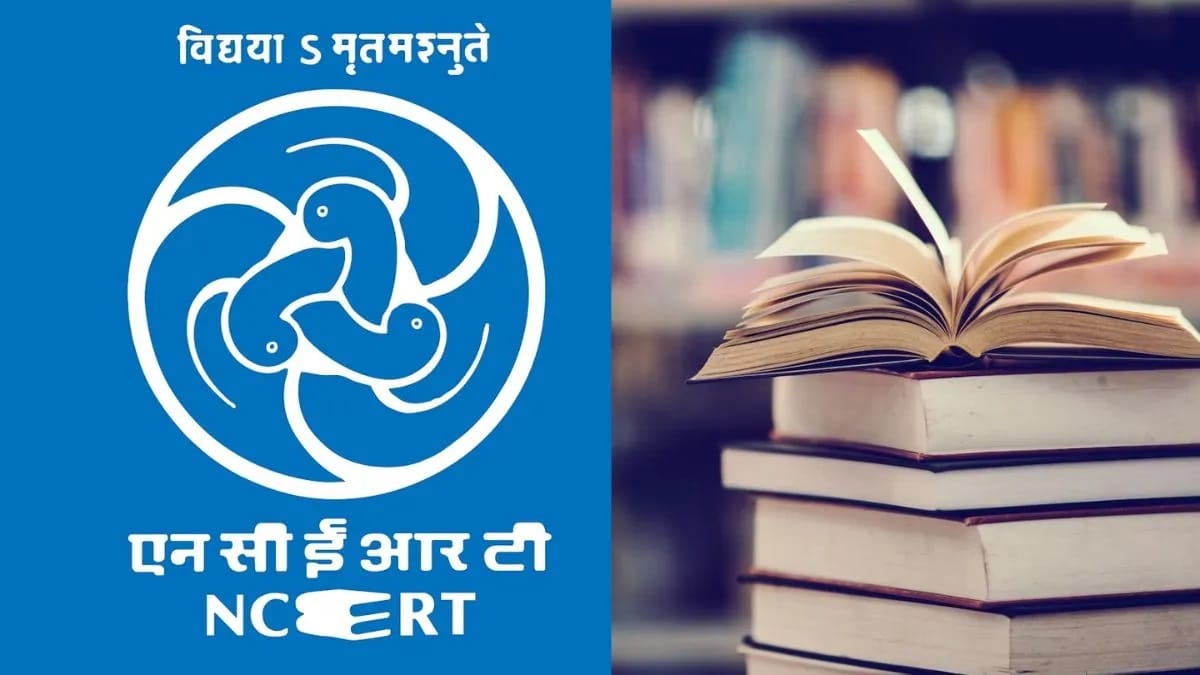Defence Minister Rajnath Singh released a book about Savarkar on the 12th of October. Speaking at the launch of the book, Veer Savarkar: The Man Who Could Have Prevented Partition, Singh had said, “Generally, a prisoner has the right to file a mercy petition. Mahatma Gandhi had asked that you file a mercy petition. It was on Gandhi’s suggestion that he filed a mercy petition..”
This statement launched a war of words between the opposition and the Government, with the opposition accusing the Union Minister of trying to rewrite history. This hasn’t been the first time that something like this has taken place. In 2019, Union Home Minister Amit Shah, in a seminar at Banaras Hindu University, spoke about the need to “rewrite history” from an “Indian point of view” and went on to ask, “who is stopping us from amending history”. And in 2018, Reuters reported a meeting with a 14-member committee that discussed “the use of evidence such as archaeological finds and DNA to prove that today’s Hindus are directly descended from the land’s first inhabitants many thousands of years ago, and make the case that ancient Hindu scriptures are fact, not a myth.” That coupled with the recent removal of texts by Dalit writer Bama, poet Sukirtharani and author Mahasweta Devi from the Delhi University syllabus has made this a repeated fatality.
Defence Minister Rajnath Singh released a book about Savarkar on the 12th of October. Speaking at the launch of the book, Veer Savarkar: The Man Who Could Have Prevented Partition, Singh had said, “Generally, a prisoner has the right to file a mercy petition. Mahatma Gandhi had asked that you file a mercy petition. It was on Gandhi’s suggestion that he filed a mercy petition..”

On one side, the argument in changing history is seen as a comprehensive solution. After all British schoolchildren learn a history that is whitewashed enough to bring a sense of nationalism and American history still credits Columbus as the one who “discovered” the land. Is reading a history that brings a sense of nationalism to the picture is it really a bad thing?
Also read: Laying Claim On Forms Of Narration: The Adivasis Can Speak And Must Speak
In an interview with Outlook, Chandra Bhushan Sharma who was the Chairman of the National Institute of Open Schooling from 2015 to 2020 said, “When we prescribe a text, we say this is our stand. So, removing Mahasweta Devi’s story is perfectly justified. It should not have been on the curriculum. It is a story about an aberration. Indian society is not primarily oppressive. If you prescribe such a story in the curriculum, it means you have some malice in mind…””The purpose of a curriculum is not just of giving jobs but to create good and proud citizens.”
Nationalistic history could bring people from all walks of life together. Just as in India’s freedom movement, people came together to fight against the colonisers, nationalism today can help our country reach newer milestones in development through working for a common goal with a shared history and pride that is untouched by the deplorable actions that were committed in the name of caste, religion and gender. After all, countries like the USA and the UK, that committed genocide on ethnic groups and colonised natives for their benefits are still teaching national pride and are seen as developed nations that developing countries are expected to idealise.
In current times, the process of denying an irrefutable historical fact has become common with people questioning every shred of the world. Denialism or historical negation has been put into the forefront of sociological discourse because of the nature of today’s world. Where “research” accessible online is turned into a fact against the many types of research that prove otherwise. In this day and age, if anything seems out of proportion or doesn’t seem to answer all the questions or merely exists and is subject to denial- people deny it and they cleverly find ways to justify their stance too. In the post-modern era wherein all things are supposed to have sides why not take the one that benefits our nation, apparently? Is rewriting history so bad, they probably wonder. After all, we can create more heroes for ourselves, more people to look up to right? What more, this also gives a nation, with whom so many have come to be disillusioned and for a government that has so much to hide, a clean slate from where to begin it all again. This way, a collective amnesia could prevail and no past injustice could cloud our judgement… .
On the other hand, history is an important piece of information we have about ourselves. The past is a powerful force, leaders seek to curate the national history with nearly the same care they give to their present-day image management. Sometimes the effort is overt, as in Stalinist Russia, when “history was not what the archives said but what the (Communist) Party decreed,” as Stalin biographer, Simon Sebag Montefiore writes. (Global Researcher) A nation’s history is what it will be known as for the rest of its existence and even after its dissolution, like the USSR. Curating is always in the best interest of the powerful. In dictatorial North Korea, no one knows what to expect of countries outside its boundaries because their lives are curated such that they are forced to listen to the same state-sponsored facts over and over again. Polish sociologist Zbigniew Bokszański writes, national pride is “both an assessment of one’s own people and a satisfying effect caused by the realization of one’s belonging to the national community.” (Bekus) Even though it creates a sense of false community and solidarity within the citizens, it also isolates the nationalist nation from the ideas that are present in other countries.
Re-writing history from the lens of the majority view would eliminate people of the minorities from the purview of history. It would either paint them as oppressors that need to be feared or completely erase their existence.
Getting history wrong’ is the precondition of nationalist history because it requires not only collective remembering but collective forgetting. This ‘forgetting’, said Renan, ‘I would go so far as to say historical error, is a crucial factor in the creation of a nation, which is why progress in historical studies often constitutes a danger for [the principle of] nationality.’
Also read: The Historical Erasure Of India’s Groundbreaking Dalit Feminism
India’s founding nationalism came from a collective need to have a say in how we live and who dictates that. What brought us together as a nation was always a tragedy. In the recent years, tragedies have been far too many, and have perpetrators who are conjoined to a micro-identity that is shared making it difficult for people to be objective. The colonisers were aliens in our land, they did not know us, they could not be us but the perpetrators of casteist, patriarchal, brahminical and religious superiority are people we know and and some of whom, we have loved. It becomes easier to rewrite that history because there is no common enemy for now. There are minor enemies in everyone’s lives, including the lives of the oppressors. However, the act of rewriting history would ensure that smaller enemies are kept aside and a newer, broader one could be brought to the forefront. This would result in the unification of the majority but it will also lead to situations that are far beyond our imagination.
It is the powerful, the victorious who get to define history. Even the quote “History is written by the victors”, popularly attributed to the former Prime Minister of Britain Winston Churchill can also be traced back to Hermann Göring, who was convicted a war criminal for his involvement in the Nazi Party and who lost the World War to Churchill.
But in recent years, especially the last three decades, we have seen Black historians in the U.S. coming forward to write their own history, taking their narratives into their own hands and making the history more inclusive with historical heroes that are from all racial identities. While the history of a superpower is being rewritten and redefined with each step, it is only fair to believe that our secular and mostly inclusive history should have no need to be rewritten, right?
Instead, history should be rewritten in the sense of adding more details about the internal struggles that have led to who we are as a nation today. It needs to integrate and especially highlight contributions made by marginalised communities. The little we know about tribal leaders, women freedom fighters or the mere existence of the LGBTQ+ community is only because we have traditionally denied their important narratives centrestage.
Wrong. Instead, it should be rewritten in the sense of adding more details about the internal struggles that have led to who we are as a nation today. It needs to integrate and especially highlight contributions made by marginalised communities. The little we know about tribal leaders, women freedom fighters or the mere existence of the LGBTQ+ community is only because we have traditionally denied their important narratives centrestage. And that does mean we talk about the problems that marginalised communities have faced under the ruling class and how because of the privileged, upper class lens of written history we never learn about their true contributions, just some names. Our history has led us to who we are now, to erase it or to redefine it to suit dominant ideologies would only make it worse.
The sense of being Indian has for the longest time been defined by secularism and fraternity. Indian culture is revered for being such a pluralistic haven for different communities. While that is not entirely true- it is not a wise decision to go back on that and make ourselves exclusive. Our history has led us to who we are now, to erase it or to redefine to make it cleaner would only make it worse.
Yugantika is a student of English. She loves politics, popular culture and stories. She has a weekly podcast for 3AM blues called Secrets in the Dark. You can find her on Instagram and check out her podcast here.
Featured image source: ThePrint




